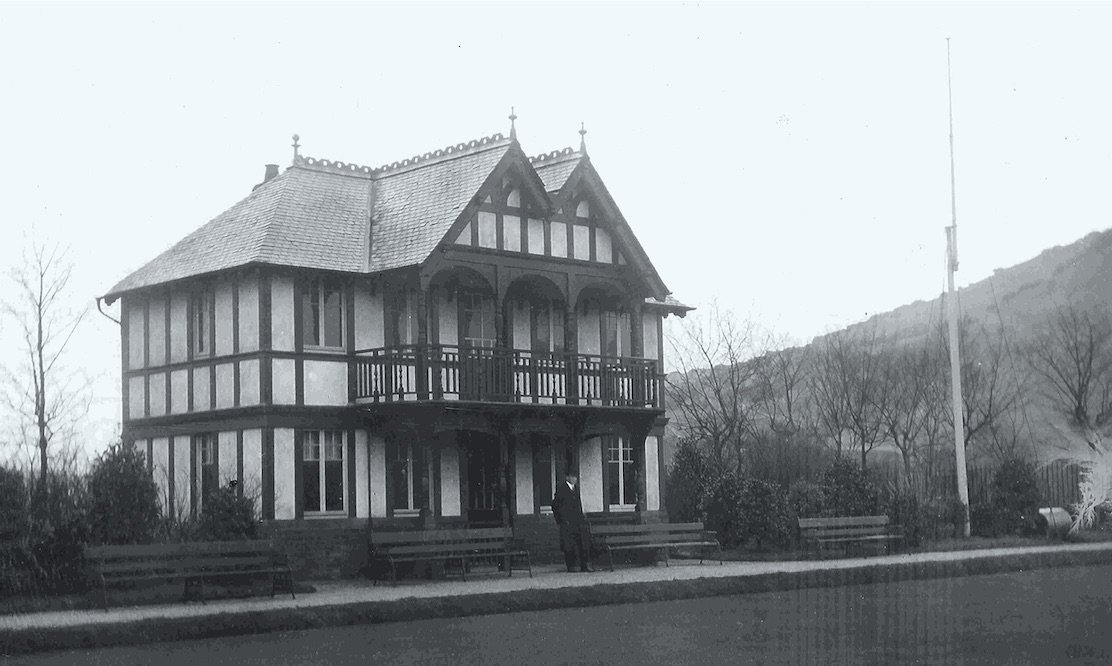Writing Home
It’s a letting agent now, but then, back when we lived there, it was the half past nine shop. At one end of our road was a bowling club where once the famous cricketer Dr W.G. Grace played in an international bowls match for England against Scotland, in the middle, there was a girls’ private school, and, at the other end, one of the neighbourhood’s many churches. It was that sort of road. Slightly incongruously, just beyond the United Free Church, down towards the short hill that led to “the village”, was the half past nine shop.
The half past nine shop was so called because it closed at half past nine. At night. That was quite something then. There was another shop a bit further away, a few more roads to be crossed, which also stayed open late. I once went there to buy a lemon. But as far as post-5pm commerce was concerned, that was it. And there was nothing open on Sundays.
The owner of the half past nine shop was an eccentric. You’d have to be to have a shop at the end of a road with a bowling club at one end, a church at the other, and a girls’ private school in the middle. And nothing in the window to indicate what you sold. I suppose it was what then we would have called a corner shop, although it wasn’t quite on the corner. These days a convenience store, and certainly being open until 9:30pm was convenient.
Half past nine shop man was tall, thin and although not immaculately dressed, was always wearing a tie, sometimes with a sports jacket, sometimes a cardigan. If not actually smoking, a packet of cigarillos was always within reaching distance. He wasn’t that old, and the way he repeated orders back to you (“A pint of milk and a box of matches, please.”, “A pint of milk and a box of matches.”), combined with a slight nervousness, made me think he was ex-army, maybe a war veteran, although which war he done, I wouldn’t know. Aden? Kenya? I never saw anyone else working in that shop.
In addition to the USP of late opening, he sold postage stamps, so two unique selling points in fact. These days, if you are so minded, you can buy stamps in loads of places, newspaper shops (if you can find one), greeting card shops, supermarkets, petrol stations. Or go online and buy counterfeit Chinese ones indistinguishable from the real thing. But then - we’re talking late 1970s - the only legal retailer of postage stamps was the Post Office.
That wasn’t strictly accurate. Indeed, in response to a question from Lord Orr-Ewing, there was a short (and heated) debate on the matter on 12 October 1971 in the House of Lords:
LORD DENHAM My Lords, since 1966, when licences to sell postage stamps were abolished, anyone has been free to sell postage stamps.
LORD ORR-EWING My Lords, I am delighted that my noble friend has given a very satisfactory Answer indeed. I only hope that this publicity will make the stamps more readily available to overseas visitors—something which I should have thought would also be to the benefit of the revenue of the Post Office.
LORD PEDDIE My Lords, would the noble Lord not agree that his reply needs a slight modification; in the sense that postage stamps can be sold only if they are sold without any profit?
LORD DENHAM My Lords, I do not think my reply needs modification. My Answer did not imply that there was any profit involved.
One of those annoying quirks of British life which doubtless had annoyed countless visitors to this scepter'd isle over the years. Yes, we can sell you postcards of Buckingham Palace, the delights of the Yorkshire Dales, the Bonnie Banks of Loch Lomond and the splendour of Snowdon. But, no, because current legislation doesn’t allow us to sell postage stamps at a profit, it’s not worth our while so you’ll need to go to the Post Office. And, oh, it’s a Saturday afternoon and Post Offices are closed. now, but they’ll be open again on Monday morning.
But half past nine shop man sold postage stamps on the side, keeping them in the inside pocket of his sports jacket for those customers who were in the know. The only source of the stamps can have been our local Post Office (fake Chinese ones being but a distant dystopian dream) and he didn’t sell them at a profit. It was all done purely as an act of goodwill, a weird act of goodwill.
Even weirder though was that on several occasions, my mother sent me out of an evening to the half past nine shop to purchase stamps. My mother wasn’t a great letter writer. I’m not passing judgement on the quality of her correspondence, although she did once write to the dairy expressing vexation over the difficulty of opening their milk cartons. (She received a reply agreeing with her, which swiftly drew a line under that exchange.)
No, not the quality of her letter writing but the quantity. I don’t recall her writing so frequently that it caused her to run out of stamps, nor for her correspondence to be so urgent that she had to get the letters mailed that night. It’s not as if we were living in a Wilkie Collins novel or that there was even a mail collection from the post box before sun rise the following morning. It's like she just wanted me out of the house for 25 minutes …
It’s a care home now, but back then it was a girls’ private school.
Soon they’ll start converting it to flats, but back then it was the United Free Church.
The bowling club is still there and going strong. Scotland beat England the day W.G. Grace came in 1908. That would have been something to write home about.
